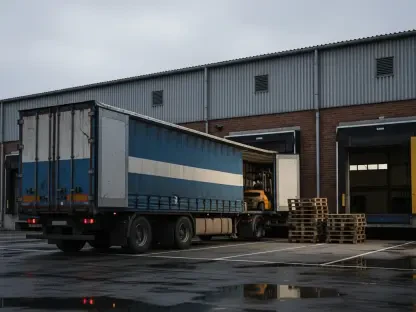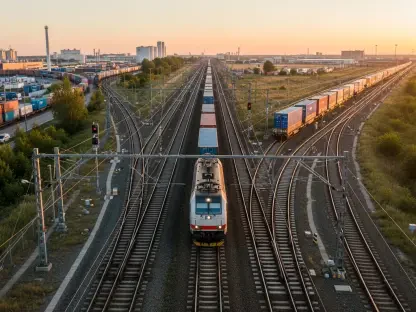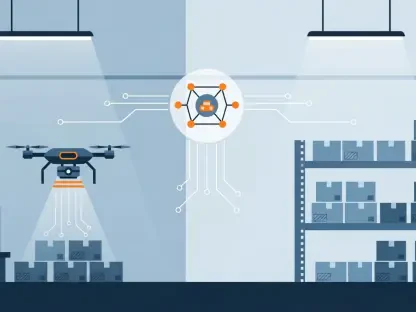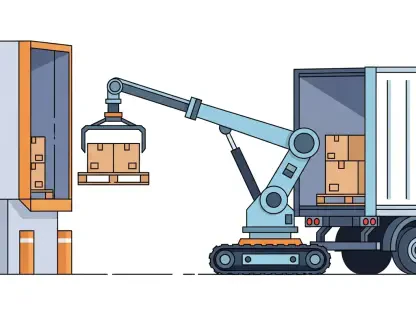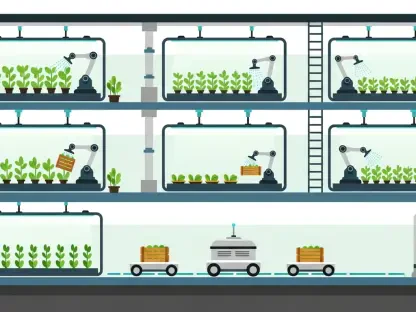The initiative to transform the Avonmouth Docks in Bristol into a significant carbon capture and shipping hub has gained momentum, with a major focus on utilizing existing rail infrastructure. Conducted by Apollo, an Aberdeen-based engineering consultancy, the study under the “7CO2 Carbon Capture and Shipping Hub” project aims to draw substantial investment into the Bristol region, potentially amounting to £4 billion (approximately €4.7 billion). This innovative endeavor aligns with the UK’s climate goals, leveraging non-pipeline transport (NPT) of liquefied CO2 to a central facility at Avonmouth for various industrial applications and storage solutions.
Innovative Rail Solutions for Carbon Capture
Leveraging Existing Infrastructure
A vital aspect of the project is the use of existing rail infrastructure to transport liquefied CO2 from several regional emitters to the central facility at Avonmouth. This strategy aims to optimize efficiency and minimize costs associated with pipeline transport. The Avonmouth Docks are already well connected to the rail network, making them an ideal location for this ambitious carbon capture and shipping initiative. By capitalizing on the existing infrastructure, the project aims to achieve financial viability while reducing the environmental impact associated with constructing new pipelines.
The project’s focus on rail logistics is not just about moving CO2 efficiently; it also considers the broader implications for the UK’s transportation network and industrial strategy. Enhancing rail freight capabilities could have far-reaching benefits, including reduced traffic congestion and lower emissions from road transport. Apollo’s studies will delve into various facets, including the potential for increased rail traffic, land use planning for industrial decarbonization, and power supply options. This integrated approach ensures that the project contributes to regional economic development while aligning with national climate objectives.
Economic and Environmental Gains
The potential economic and environmental benefits of the Avonmouth carbon capture hub are significant. By creating a centralized facility for CO2 capture and storage, the project can attract investment and foster job creation in the Bristol region. The revitalized importance of shipping and increased rail traffic will boost the local economy, while the reduced reliance on pipeline transport will lower carbon emissions. This dual focus on economic growth and environmental sustainability makes the project a compelling case for further investment and development.
The funding from the UK Innovate Local Industrial Decarbonisation Plan (LIDP) underscores the project’s alignment with national climate goals. The initiative aims to turn marine emissions into economic assets by utilizing advanced carbon capture technologies. By exploring various power supply options, including renewable energy and small modular nuclear reactors, the project can ensure a sustainable and reliable energy source for the carbon capture hub. This comprehensive approach highlights the importance of integrating various elements to create a successful and impactful project.
Collaborative Efforts and Stakeholder Involvement
Key Industry Stakeholders
Among the key industry stakeholders involved in the project are GB Railfreight, VTG, and the upcoming Great British Railways infrastructure management agency. These entities play a crucial role in ensuring the project’s success by providing the necessary expertise and resources to optimize rail logistics and infrastructure. GB Railfreight’s experience in rail transport and logistics will be instrumental in developing efficient CO2 transport solutions, while VTG’s expertise in railcar leasing and maintenance will ensure the availability of specialized railcars for liquefied CO2 transport.
The collaboration with the Great British Railways infrastructure management agency will help streamline the integration of the carbon capture hub with the existing rail network, ensuring seamless operations and minimal disruptions. This partnership highlights the intertwined nature of rail infrastructure and environmental sustainability, demonstrating the potential for innovative solutions to address complex challenges. By leveraging the strengths of these industry stakeholders, the project stands to benefit from a wealth of knowledge and experience, paving the way for successful implementation.
Challenges and Future Prospects
The project to turn the Avonmouth Docks in Bristol into a major carbon capture and shipping hub is picking up steam, emphasizing the use of existing rail networks. Led by Apollo, an engineering consultancy based in Aberdeen, the initiative falls under the “7CO2 Carbon Capture and Shipping Hub” project. Its goal is to attract significant investment to the Bristol area, with potential funding estimated at £4 billion (around €4.7 billion). This forward-thinking project supports the UK’s climate objectives by employing non-pipeline transport (NPT) methods for liquefied CO2. The CO2 will be transported to a central facility at Avonmouth, where it will be used in various industrial applications and storage solutions.
The project not only aims to boost the local economy but also aligns with the broader UK strategy for reducing carbon emissions. By using rail infrastructure, the initiative makes efficient and environmentally friendly use of existing transport networks. This approach is pivotal as the UK moves towards its goal of net-zero emissions. Overall, this innovative venture promises a cleaner future while bolstering the Bristol economy.



